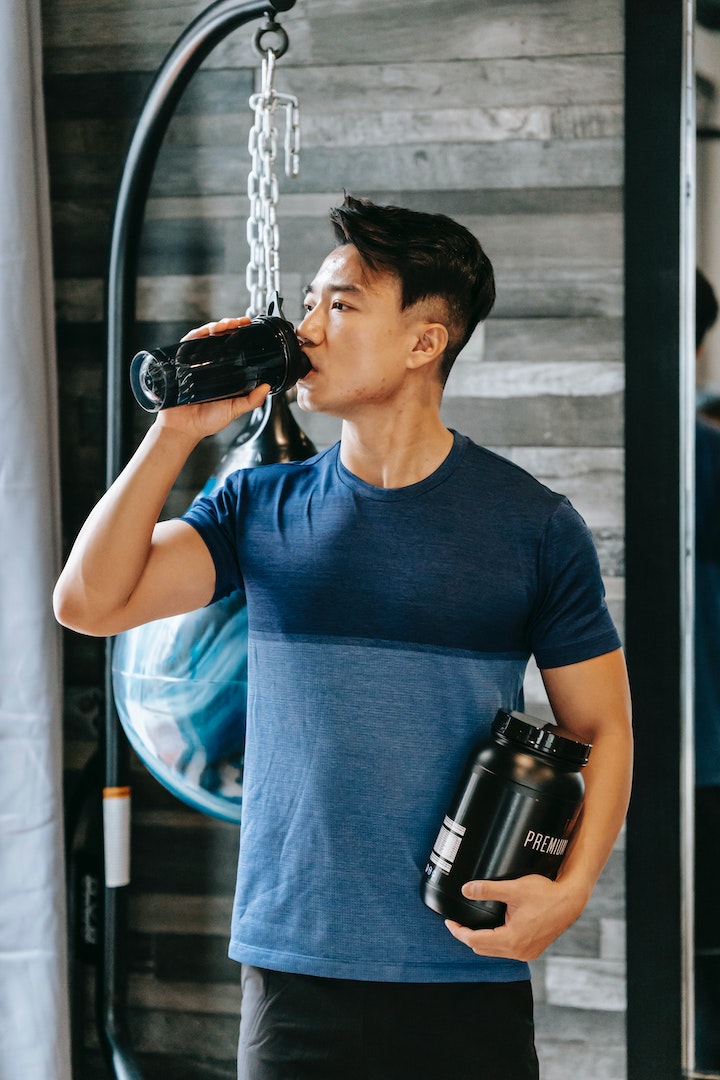

As you step into a physical therapy clinic, you can’t help but notice the various equipment and tools used for rehabilitation. From resistance bands to balance boards, these tools are essential in helping patients recover from injuries or illnesses.
However, have you ever stopped to think about the role of nutrition in physical therapy? Just like the equipment and tools, nutrition plays an equally important role in the healing process.
Imagine a car without fuel – it won’t be able to run efficiently or reach its destination without breaking down. Similarly, your body needs proper nutrition to function optimally and heal effectively.
Whether you’re recovering from surgery or trying to manage chronic pain, nutrition is crucial in providing your body with the building blocks it needs for recovery. In this article, we’ll explore why nutrition is vital in physical therapy and how healthcare professionals can work together to develop effective food plans for their patient’s unique needs.
You’ll want to know the basics of what you’re putting into your body, so let’s dive into some key concepts of eating healthy and nourishing yourself.
 Photo Credit: Angela Roma
Photo Credit: Angela Roma
The benefits of nutrition are vast and include boosting energy levels, improving mental clarity, enhancing physical performance, aiding in weight management, reducing the risk of chronic diseases such as heart disease and diabetes, and promoting overall wellness.
To get started on the basics of healthy eating, it’s important to focus on consuming a variety of nutrient-dense foods. These include fruits and vegetables, whole grains, lean proteins such as chicken or fish, nuts and seeds, and low-fat dairy products.
Avoid processed foods that are high in saturated fats and added sugars. It’s also crucial to drink plenty of water throughout the day to stay hydrated.
By incorporating these basic principles into your diet, you can improve your overall health and well-being while supporting your physical therapy goals.
As you focus on healing, it’s crucial to understand the role that what you eat plays in your body’s ability to recover. Incorporating healing foods into your diet can speed up the recovery process and make it easier for your body to heal itself.
These foods are rich in nutrients that help with tissue repair and regeneration. For instance, vitamin C-rich fruits like oranges and strawberries are excellent sources of antioxidants that protect cells from damage caused by free radicals.
Nutrient absorption also plays a vital role in the healing process. Your body needs adequate amounts of vitamins and minerals to rebuild tissues, restore energy levels, and fight off infections. If you have digestive issues or an underlying health condition that affects nutrient absorption, you may need to take supplements or alter your diet accordingly.
Working with a qualified nutritionist can help you identify which foods will work best for you based on your specific nutritional needs. Remember that what you eat matters when it comes to healing. Therefore, making informed food choices is essential for optimal recovery.
You’ll be surprised at how much proper nutrition can improve your strength and endurance during physical therapy. By fueling your body with the right nutrients, you’ll have more energy to push through challenging exercises and see better results.
Additionally, a balanced diet can help reduce the risk of future injuries by strengthening your bones, muscles, and joints. And as you continue to progress in physical therapy, good nutrition will keep improving your overall physical function for long-term success.
Improve your strength and endurance by fueling your body with the right nutrients. Nutrition plays a crucial role in physical therapy, especially when it comes to building muscle and preventing injuries.
 Photo Credit: Gustavo Fring
Photo Credit: Gustavo Fring
By consuming a balanced diet that includes protein, carbohydrates, healthy fats, vitamins, and minerals, you can optimize your performance during physical therapy sessions. It also helps with muscle recovery after an intense workout or injury. Consuming the right amount of protein can help repair damaged muscles and improve their overall function.
See how aspects of physical therapy other than nutrition, viz. Strength Training, can help build strength.
Carbohydrates provide energy for workouts, while healthy fats support brain function and reduce inflammation in the body. By incorporating a variety of nutrient-rich foods into your diet and staying hydrated throughout physical therapy sessions, you’ll be able to improve your strength and endurance while minimizing the risk of injury.
Reducing the risk of future injuries is crucial for achieving long-term wellness, but how can you prevent them?
Nutrition plays a significant role in injury prevention, and it’s essential to understand how to use nutritional strategies to aid recovery. Eating a balanced diet with sufficient protein and carbohydrates can help repair damaged tissues and reduce inflammation. Including foods that are rich in vitamins C and E can also help improve circulation and speed up the healing process.
In addition, staying hydrated is vital for preventing injuries. Dehydration can cause muscle cramps, which increases the risk of strains and sprains. Drinking enough water throughout the day will not only keep your body functioning properly but also reduce your chances of getting injured during physical therapy sessions.
To enhance your overall physical abilities, it’s crucial to incorporate a variety of exercises into your routine that target different muscle groups and improve flexibility.
However, another important aspect to consider is nutrition. Proper nutrition can help improve physical function by providing the necessary nutrients for energy production, tissue repair, and maintaining a healthy weight.
 Photo Credit: Annushka Ahuja
Photo Credit: Annushka Ahuja
Injury prevention is key when it comes to improving physical function. Proper nutrition can help prevent injuries by strengthening bones and muscles, reducing inflammation, and promoting faster recovery from workouts.
Additionally, performance enhancement can be achieved through proper nutrition as well. By consuming enough carbohydrates for fuel during exercise and protein for muscle building and repair, you can increase endurance and strength during workouts.
Eating a balanced diet that includes proteins, carbohydrates, and healthy fats is crucial for achieving optimal performance during physical rehabilitation.
However, not all diets are created equal. Depending on your condition and medical history, you may have specific dietary restrictions that need to be addressed in order to improve your overall well-being.
This is where nutritional counselling comes in. With the help of a registered dietician or nutritionist, you can gain a better understanding of what foods are best for your body. They will work with you to create a personalized meal plan that takes into account your unique needs and goals. By incorporating the right nutrients into your diet, you can speed up recovery time and prevent further injuries from occurring.
You’ll need to work with a registered dietician or nutritionist to create a personalized meal plan that takes into account your unique needs and goals. Proper fueling can help reduce inflammation by up to 50%, which is crucial in physical therapy.
Your nutritionist will provide you with personalized recommendations based on your medical history, dietary restrictions, and fitness goals. Your nutrition plan will be tailored to your specific needs, including the type of physical therapy you are undergoing.
For example, if you’re recovering from surgery or an injury, you may need more protein than someone who’s simply trying to lose weight. Additionally, if you have any food allergies or intolerances, your nutritionist will take those into consideration when developing your meal plan.
By working closely with a professional and following their guidance, you can ensure that your body is getting the right nutrients it needs for optimal healing and recovery.
During your physical therapy sessions, your therapist will encourage you to fuel your body with nourishing foods that can help accelerate your recovery and improve your overall well-being.
Meal planning and nutritional education are key components in achieving optimal results from physical therapy. Your therapist may provide advice on meal plans that suit your individual needs, such as an anti-inflammatory diet for reducing pain and inflammation or a high-protein diet for muscle recovery.
 Photo Credit: Mikhail Nilov
Photo Credit: Mikhail Nilov
Incorporating nutrition into physical therapy sessions also involves addressing behavioural changes and dietary habits. Your therapist may ask about your current eating habits, preferences, allergies, and any medical conditions that affect nutrition.
From there, they can work with you to develop healthy eating behaviours that align with your goals. By making small but significant changes to what you eat and how much you consume during meals, you can achieve better outcomes from physical therapy while improving overall health.
Are you curious about how your progress is being monitored and how your nutrition plan may need to be adjusted during physical therapy? Well, tracking intake and adjusting goals are crucial aspects of any successful nutrition plan.
Your physical therapist will likely monitor your food intake regularly throughout your treatment to ensure that you are meeting your nutritional needs. They may also make adjustments to your diet as needed based on changes in your physical condition or goals.
Customizing diets to meet individual needs is another important factor in monitoring progress and making adjustments. Your physical therapist will work with you to determine what foods best support your recovery and overall health. They may also recommend supplements or other dietary changes based on specific health concerns or conditions.
Remember, staying committed to the nutritional component of your treatment plan can help you achieve faster and more long-lasting results from physical therapy. So don’t hesitate to ask questions, seek guidance, and stay focused on the goal!
When it comes to identifying appropriate supplements for physical therapy, you should work with a healthcare professional who can assess your specific needs. They can help determine if any nutrient deficiencies or health conditions require supplementation and recommend safe and effective options.
It’s important to use supplements as directed and be aware of potential interactions with medications or other supplements to ensure their safety and effectiveness in supporting your physical therapy goals.
You need to figure out which supplements will help you reach your goals and enhance your performance. With a wide range of supplements available in the market, it can be confusing to select the right one for yourself.
 Photo Credit: Andres Ayrton
Photo Credit: Andres Ayrton
You must first identify what your body needs, whether it’s protein, creatine, or vitamins. Additionally, consult with a registered dietitian or a healthcare professional who can guide you through the selection process and recommend appropriate supplements based on your unique requirements.
Once you’ve identified the right supplement for yourself, determining the proper dosage is equally crucial. Taking more than recommended doses could lead to adverse side effects that could harm your body instead of improving it. On the other hand, taking too little may not provide any benefits at all.
Therefore, always follow the manufacturer’s recommendations and seek guidance from healthcare professionals if necessary. Remember that supplements are meant to complement a healthy diet and not replace it entirely; therefore, always prioritize whole foods as they offer essential nutrients that cannot be replicated through supplements alone.
Developing guidelines for identifying appropriate supplements is just one part of ensuring optimal nutrition in physical therapy. The next step is to ensure safe and effective use of these supplements.
When it comes to taking supplements, it’s important to remember that more is not always better. Taking too much of a supplement can actually be harmful to your body and cause adverse effects. That’s why patient education is crucial in making sure that they are taking the right amount of the right supplement.
Your physical therapist will work with you to determine which supplements are necessary for your treatment plan and provide guidance on how to take them safely and effectively. It’s also important to keep your healthcare provider informed about any changes in your supplement regimen or if you experience any negative side effects.
Incorporating appropriate supplements into your nutrition plan can greatly benefit your physical therapy progress, but it’s important to do so safely and under the guidance of a healthcare professional. By following recommended guidelines and staying informed about safe usage, you can ensure that you’re getting the most out of your nutritional support during physical therapy.
It’s common for patients in PT to struggle with maintaining healthy eating habits, but by addressing these challenges, we can better support their overall well-being.
One of the most significant nutritional challenges that physical therapy patients face is dietary restrictions. Many patients with chronic conditions or injuries have specific dietary needs that must be met to ensure optimal recovery. For example, a patient with diabetes may need to monitor their carbohydrate intake carefully, while someone recovering from surgery may need a high-protein diet to promote healing.
 Photo Credit: Paz Ruiz Luque, iStock
Photo Credit: Paz Ruiz Luque, iStock
Nutritional counselling techniques are an essential tool for PTs to help their patients overcome these challenges. By working closely with a registered dietician or nutritionist, physical therapists can develop personalized nutrition plans that meet each patient’s unique needs to achieve optimal wellness and recovery.
This approach not only helps patients manage any dietary restrictions they may have but also promotes healthy eating habits and lifestyle changes that can improve long-term health outcomes.
A collaborative approach is key in helping patients achieve their goals when it comes to nutrition and physical therapy.
In the previous subtopic, we discussed common nutritional challenges that physical therapy patients may face. However, it’s important to note that these challenges can be overcome through a collaborative effort between physical therapists and nutritionists.
Patient education is an essential component of this collaboration. Physical therapists are skilled at assessing movement and function, while nutritionists have expertise in understanding how diet affects the body.
By working together, they can develop individualized plans for each patient that take into account both their physical rehabilitation needs and their dietary requirements. This holistic approach ensures that patients receive comprehensive care that addresses all aspects of their health and well-being, leading to better outcomes overall.
During physical therapy, it’s important to pay attention to the foods you eat. Certain foods can hinder your recovery process and delay progress.
To optimize your healing, avoid processed foods that are high in sugar and hydrogenated oils. These types of foods can increase inflammation in the body, making it harder for injuries to heal.
Try to limit your intake of caffeine and alcohol as well, as they can dehydrate you and slow down the healing process. Instead, focus on eating whole foods that are rich in nutrients like fruits, vegetables, lean proteins, and healthy fats.
By fueling your body with the right nutrients during physical therapy, you’ll be on your way to a quicker recovery!
You’re eager to get back on your feet after surgery, and proper nutrition can be the key to a speedy recovery. Think of it like a car needing fuel to run smoothly – your body needs nutrients to heal efficiently.
Preventing malnutrition is crucial, as it can lead to complications and delay your progress. Focus on optimizing recovery time by incorporating lean proteins, whole grains, fruits and vegetables into your diet.
These foods provide the necessary vitamins and minerals that aid in tissue repair and immune function. Don’t forget to stay hydrated too!
By nourishing your body with the right foods, you’ll be well on your way to getting back on track.
When it comes to physical therapy, it’s crucial to fuel your body with the right nutrients.
To optimize your recovery, staying hydrated is essential. Make sure you’re drinking enough water throughout the day and during your workouts.
Additionally, protein intake plays a vital role in repairing and building muscle tissue. Aim to consume lean protein sources like chicken, fish, and tofu at every meal. By prioritizing hydration and protein intake, you’ll be giving your body the tools it needs to heal and get stronger during physical therapy.
You may think that taking supplements is a no-brainer when it comes to physical therapy, but did you know that certain ones can actually be harmful?
Supplement safety should always be a top priority for patients. Make sure to ask your therapist about any possible interactions or side effects before starting a new supplement regimen. Additionally, dietary restrictions must also be taken into consideration. While some supplements may work wonders for one person, they could potentially harm another with different dietary needs.
Always consult with your physical therapist and registered dietitian to ensure the best plan of action for your unique needs.
As you age, your body requires different nutritional supplements and dietary requirements to maintain optimal health.
Depending on the type of physical therapy you’re undergoing, additional supplements may be recommended by your healthcare provider. For example, if you’re rehabilitating from joint replacement surgery, your doctor may recommend extra calcium and vitamin D supplements to promote bone growth.
It’s important to discuss any current medications or conditions with your healthcare provider before starting any new nutritional supplements. By focusing on proper nutrition and supplementation during physical therapy, you can help improve recovery time and overall health outcomes.
In conclusion, you now understand the crucial role nutrition plays in physical therapy. Just as a car needs the right fuel to run smoothly, your body requires proper nutrition to function optimally.
By focusing on nutrient-rich foods and supplements, you can aid in the healing process and reach your physical therapy goals more effectively. Remember, collaboration between your physical therapist and a registered dietitian or nutritionist is key in developing a personalized nutrition plan that meets your specific needs.
Together, they can monitor progress and make adjustments as needed to ensure you’re getting the best possible results. So, fuel up with healthy options and watch yourself go from zero to sixty in no time!
There are no results matching your search.
Reset